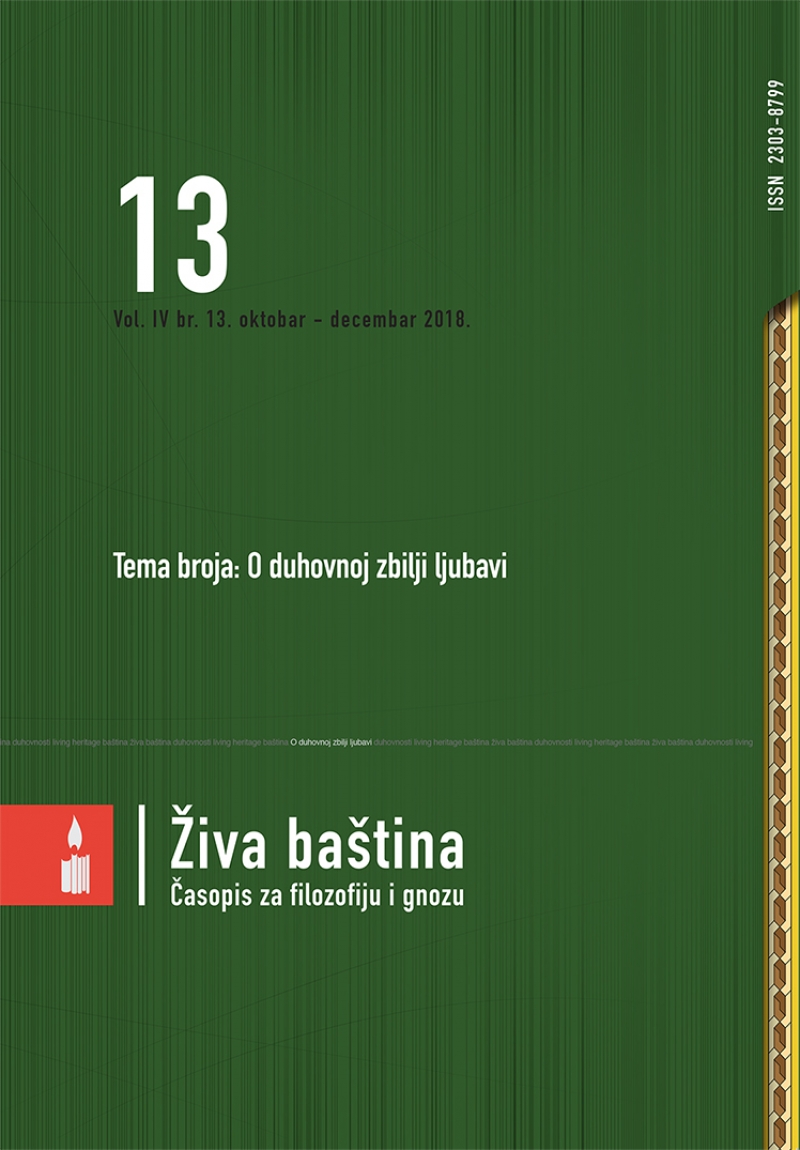Dijalektički Monizam Heraklita Efeškog i Mevlane Dželaluddina Rumija
Dialectical monism of Heraclitus of Ephesus and of Maulana Jalaluddin Rumi
Author(s): Sedad DizdarevićSubject(s): Philosophy, History of Philosophy, Philosophical Traditions, Epistemology, Theology and Religion
Published by: Fondacija “Baština duhovnosti”
Keywords: Heraclitus; Rumi; Prisca theologia; dialectical monism; coincidentia oppositorum; Heraklit; Rumi; dijalektički monizam;
Summary/Abstract: The paper attempts to examine the notional similarities and parallels between two historically and ideologically very distant thinkers by using a comparative and analytical approach. Heraclitus belongs to the antique thought and his philosophical view originates within the Mediterranean Hellenistic matrix, while Rumi belongs to a totally different civilizational epoch and ideological matrix. However, both of them were ahead of their time and both taught things which were not usual and understandable to their surroundings.By a critical and detailed reading of their texts and by comparing their key ideas we have come to a conclusion that what they have in common is a dynamic, progressive and dialectic concept of the universe perceived in a monistic and integral way. The basic principle according to which the universe moves and to which it owes its uninterrupted and undisturbed existence is the principle of coincidentia oppositorum. This principle presents the connective tissue and universal force that separates and at the same time connects everything, always new, fresh, more quality, better and more advanced. Rumi calls that principle and force love while Heraclitus calls it fire. When Rumi talks about love as a basic principle of coincidentia oppositorum, he calls it fire, flame, ingle and ember.Besides the similarities between them, there is a certain difference in the interpretation and drawing of conclusions related to what they teach. Heraclitus’ philosophy is greatly pessimistic, depressing and, to a certain extent, nihilistic, which is probably the reason why it attracted a great number of existentialistic philosophers. On the other hand, Rumi’s philosophy is very optimistic, bright, promising, positive and inspiring.
Journal: Živa baština: časopis za filozofiju i gnozu
- Issue Year: 4/2019
- Issue No: 13
- Page Range: 28-36
- Page Count: 9
- Language: Bosnian, Croatian, Serbian

